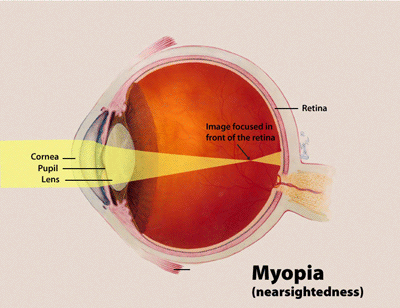I've been reading a lot of fashion blogs recently. I love them: they're like subscribing to
Vogue, but funkier, more egalitarian, more influenced by thrift store style, and much quicker (they change rapidly in response to street style). Even for someone who's never been known as a fashionista, they're strangely invigorating.
I wish I could say that this has substantially changed my wardrobe--in a small way, it probably has--but it has changed a good deal about the way I see the world. I notice aesthetic details more often now, most often in others' clothing but in design in general. When I see a woman who looks stylish, I don't just think, "She looks cute," I think, "Look at that interesting ribbing on her cardigan. And what makes those shoes a little different? The higher ankle? I like her choice of watch size, etc."
I've made an active study of these details in the hopes of improving my own work wardrobe. I've taught myself to see differently to the point where, believe it or not, it's almost second nature to me to notice the impact of individual accessories on an outfit. To say the least, this is
not something I would have ever thought I'd be doing!
But I wonder if what we choose to see always comes at a cost to those details we choose to miss. The human eye--and mind--can only take in so much at a time. It's a survival tactic: if we pay attention to every blade of grass on the plains, the fluffy clouds in the blue sky, and the grasshoppers zinging around our feet, we might miss the irate buffalo barreling toward us. We tend to see the most important thing in any given setting by nature. Charging buffalo: important. That cloud that kind of looks a little like a buffalo: maybe we'll notice that when we're not running for our lives.
 |
| Watch out! |
But in the absence of a buffalo, the first things we notice are what we've trained ourselves to see by inclination and mental habit. This is why one of my first creative writing teachers encouraged our class to eavesdrop on others. She told us to keep our ears open on buses, in hallways, in our dorm rooms, to listen shamelessly whenever someone talked loudly on a cell phone in public. She said it would give us an ear for natural dialog, a familiarity with spontaneous human language which would seep into our own writing. I've always been thankful for her advice--it makes public transportation far more interesting!--and because it actually works: along with my writing style, she has altered my vision in some small way forever.
 |
| If you subject me to your cell phone conversation on the bus, be assured that I will be listening to you. |
People choose their own systems of vision every day, seeing things and events as proofs of whatever interests, theories, assumptions, and prejudices that they have adopted most fervently (or allowed to be ingrained in them). We see the world through a lens shaped by our past, by our culture's ideologies, and by ourselves, a lens that actively reshapes the world whether we want it to or not. Without ever knowing why, a depressed person driving home from work will see gray clouds, all the lousy drivers cutting them off, and roadkill strewn along the median, while a relatively happy person might see the light shifting through the clouds, the green fields nearby, and that nice little Toyota that got back into the right lane right on time. The road may stay the same, but a person's state of mind changes everything.
 |
| Distorted vision. |
My point is that it's important to be conscientious about the sight you choose to exercise in the world. Seeing is not passive but an active reshaping of our surroundings, our relationships, and, consequently, our lives. I may choose to be more cognizant of fashion, yes, but I don't want to forget how to see others' personal strengths and struggles and uniqueness. I want to remember how to look past nail polish and bias cuts to see people how their friends and mothers must see them, with kindness and understanding and completeness, as people whose lives stand for far more than what they wear, where they work, or who they text as they wait to get off at their bus stop and walk home.









